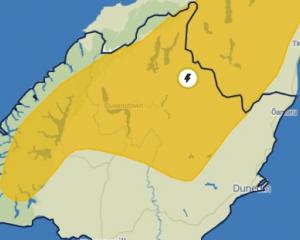
New Zealand winters are a month shorter than they were 80 years ago, research by Niwa scientists shows.
Winter is conventionally regarded as running from the beginning of June to the end of August but when defined by temperature its length varies.
Niwa scientists have looked at the last 30 years of data - considered the minimum amount of time to come up with a statistically meaningful long-term average.
Between 1987 and 2016, New Zealand had only 70 days of below -9degC temperatures, says principal climate scientist Dr Brett Mullan.
Between 1909 and 1938, the average was 100 days of below -9degC temperatures each year.
Dr Mullan said the statistics mirrored worldwide trends, with the United States also reporting a shortening of winter - the first frost coming a month later than it did 100 years ago.
"This is a consequence of rising temperatures around the globe, and such trends in colder temperatures and frosts will influence the life cycle of plants and animals,'' he said.











